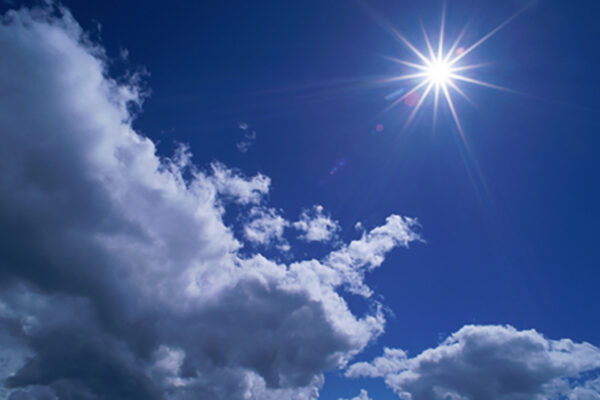Scientists learn how horseweed shrugs off herbicide
A team of scientists from Washington University in St. Louis and Monsanto, a St. Louis-based company that makes the glyphosate-based Roundup herbicides, were able to follow molecules of the herbicide as they entered a resistant weed and to discover exactly how the plant disarms it. In a second paper they describe a herbicide application technique that can be used to outfox the resistance mechanism they had discovered.
The back story
Glyphosate has been called a once-in-a-century herbicide in part because it had been in use for an astonishing 25 years before there were any reports of resistance to it. Glyphosate was first tested for herbicide use by John E. Franz of Monsanto in 1970. Franz found it is a “broad-spectrum,” or non-selective herbicide, capable of […]
Chemistry with sunlight
Kevin Moeller, PhD, professor of chemistry in Arts & Sciences at Washington University in St. Louis, is working to find ways to use clean energy in clean chemistry. “We can make the oxidation reactions used in the synthesis of organic molecules cleaner by hitching photovoltaics to electrochemistry,” Moeller says. It’s not a new idea, but one Moeller and his colleagues hope catches on.
Optical Society honors Lihong Wang
The Optical Society (OSA) has awarded the C.E.K. Mees Medal to Lihong V. Wang, PhD, the Gene K. Beare Distinguished Professor of Biomedical Engineering at Washington University in St. Louis. The medal was given for Wang’s seminal contributions to photoacoustic tomography and Monte Carlo modeling of photon transport in biological tissues and for leadership in the international biophotonics community.
Flooding will only worsen unless river management improves, says WUSTL hydrogeologist
Washington University in St. Louis hydrogeologist Robert Criss, PhD, wasn’t particularly surprised by the spring floods on the Mississippi this year. Floods are becoming more frequent and more severe, he says. “We are increasingly constraining the river by building wing dikes and higher levees and then upping the ante by building in the river’s natural flood plains” Criss says. “There are far better ways to deal with this problem than have municipalities compete with one another to build the highest levee and fight over who has the right to be protected in times of distress.”
Turning plants into power houses
Plants are less efficient at capturing the energy in sunlight than solar cells, mostly because they have to drag along evolutionary baggage. But scientists are already thinking of creative ways to fix the inefficiencies.
Rodolphe L. Motard, former chairman of the Department of Chemical Engineering, 85
Rodolphe L. ”Rudy“ Motard, PhD, professor of chemical engineering and chairman from 1978-1991 of the chemical engineering department in the School of Engineering & Applied Science at Washington University in St. Louis, died April 23, 2011. He was 85.
Srinivasan Sridharan, professor of civil engineering, 69
Srinivasan Sridharan, PhD, professor of civil engineering at Washington University in St. Louis since 1980, died April 24, 2011, at St. Johns Mercy Medical Center in St. Louis from complications of treatment for leukemia. He was 69.
Krantz to be honored at Midwest Several Complex Variables Conference
Washington University in St. Louis is hosting the Midwest Several Complex Variables (SCV) May 11-14 in honor of Steven Krantz, PhD, professor of mathematics in Arts & Sciences at WUSTL and John Erik Fornaess, PhD, professor of mathematics at the University of Michigan.The conference is expected to bring to campus more than 80 mathematicians from around the country and the world.
Rice’s origins point to China, genome researchers conclude
Rice originated in China, a team of genome researchers has concluded in a study tracing back thousands of years of evolutionary history through large-scale gene re-sequencing. Their findings, which appear in the latest issue of the Proceedings of the National Academy of Sciences (PNAS), indicate that domesticated rice may have first appeared as far back as approximately 9,000 years ago in the Yangtze Valley of China. Previous research suggested domesticated rice may have two points of origin — India as well as China.
View More Stories

